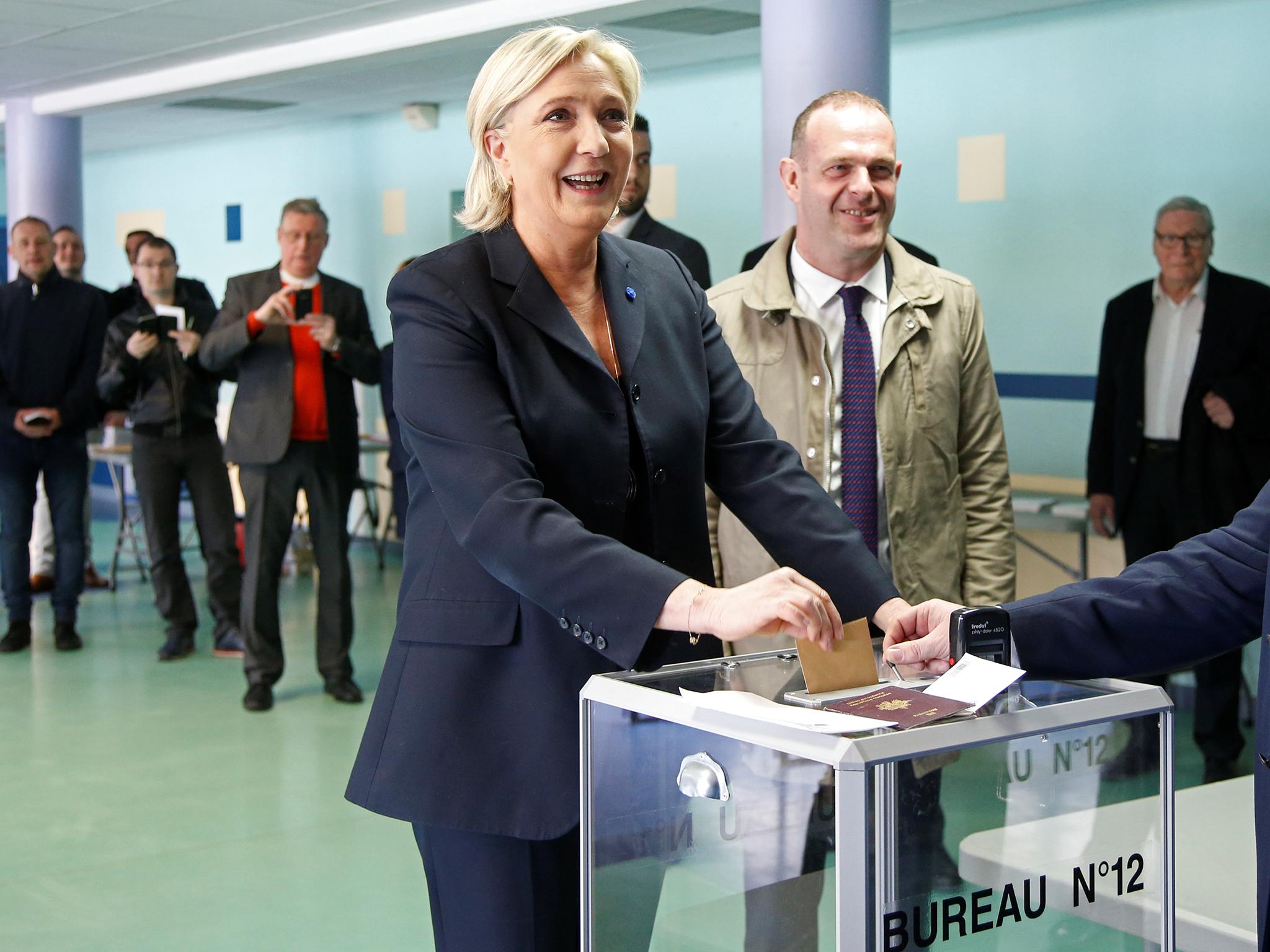French election: Marine Le Pen could still become France's next president, new analysis finds
French physicist Serge Galam says voter turnout could affect the result

Your support helps us to tell the story
From reproductive rights to climate change to Big Tech, The Independent is on the ground when the story is developing. Whether it's investigating the financials of Elon Musk's pro-Trump PAC or producing our latest documentary, 'The A Word', which shines a light on the American women fighting for reproductive rights, we know how important it is to parse out the facts from the messaging.
At such a critical moment in US history, we need reporters on the ground. Your donation allows us to keep sending journalists to speak to both sides of the story.
The Independent is trusted by Americans across the entire political spectrum. And unlike many other quality news outlets, we choose not to lock Americans out of our reporting and analysis with paywalls. We believe quality journalism should be available to everyone, paid for by those who can afford it.
Your support makes all the difference.Far right leader Marine Le Pen could still win the French Presidential election, even though her opponent Emmanuel Macron appears to be well ahead in opinion polls, according to a new mathematical analysis.
French physicist Serge Galam has published a fourteen-page paper which claims the Front National Leader could still win mathematically. His theory of “differentiated abstention” hinges on variation in voter turnout.
Mr Macron was in first place after the first round of voting on Sunday, receiving 24 per cent of the vote to Le Pen’s 21.3 per cent - a difference in real terms of around 1 million votes.
Candidates and their parties from across the political spectrum who lost out in the first round, including Francois Hollande’s Socialist party and the right wing Les Republicains, have called on their support base to back Mr Macron.
It is widely believed that the former investment banker will win because he should attract a broader coalition of voters than the far-right Le Pen.
However, Mr Galam has said that Ms Le Pen could win by 50.07 percent, if turnout for the two camps varies widely from pollsters’ estimates.
In the table below, "A turnout x" represents voters who backed Le Pen in the first round, "B turnout y" Macron's votes. 'Actual Ia' and 'Actual Va' show the various configurations of the final vote, depending on how many of these voters turn out on the day.

"If 90 percent of people who said they would vote for Le Pen go through with it it, and at the same time only 65 percent of people who declared they would vote for Macron actually vote, then it's Marine Le Pen who wins the election with a score of 50.07 percent", the paper claims.
Mr Galam said his theory “makes the likelihood that Marine Le Pen could be elected shift from impossible to improbable”
Although Mr Macron is still comfortably ahead with just over a week to go, his support dipped under 60 per cent for the first time since March, according to the Opinionway poll tracker.
Presitrack said in its survey on Thursday that 59 percent of votes would be cast for the long-time favourite Macron versus 41 for Marine Le Pen, compared with 60 percent and 40 percent respectively reported in its poll a day earlier.
French voters will go back to the polls on 7 May to decide who will be their country’s next president.
Join our commenting forum
Join thought-provoking conversations, follow other Independent readers and see their replies
Comments